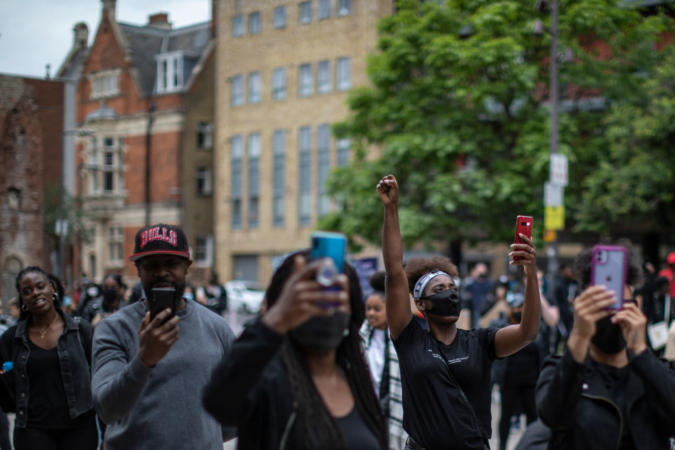A huge concern for many protesters and activists on the frontlines is digital privacy. With law enforcement having access to more surveillance tools, they have the power to use such tools to track protesters and silence their movements.
According to Wired, there are two aspects of digital surveillance that people should be mindful of when protesting — data that can be obtained from your cellular device and law enforcement surveillance, which includes wireless interception of text messages tracking tools, and facial recognition.
Police have been documented for being violent and aggressive toward civilians during these recent protests and haven’t hesitated to attach or arrest peaceful protesters, so it’s safe to assume any digital evidence they obtain can and will be used against people.
The best way for protesters to combat digital surveillance from law enforcement is to use safe practices for devices when participating in demonstrations. Follow the below tips to better equip yourself on the frontlines:
Leave Your Phone at Home
The most obvious and surefire way of leaving no trace of digital footprints while protesting is to simply leave your phone at home.
According to The Verge, your phone carries a lot of specific information about you, which could reveal where you live, where you work, and what protests or demonstrations you’ve recently attended.
Of course, depending on your circumstances, this is not without risk but if your safety is the top priority this is the best choice.
Protect Your Smartphone
If you find it absolutely necessary to bring your phone with you, then it’s best to equip it with the proper safeguards.
-
- Back up your device before going out: In case your device gets stolen or you lose it, back up all vital information to a separate device before leaving your house. This way you can delete any data remotely and restore it on another device.
- Use burner accounts: Setting up new burner accounts on social media can conceal your identity, especially if connected to a public Wi-Fi network. Remove any trace of your identity or personal information with your burner accounts by registering under a secret phone number or email that’s not directly connected to your life.
- Use encrypted apps on your phone: Using encrypted messaging on your phone can prevent it from being compromised over the air. They are apps that can combat facial recognition technology as well as erase messages.
- Turn off biometric authentication: Biometrics — like a face or touch ID — are incredibly convenient ways for police to get ahold of you. Turning these settings off on your phone can help protect your identity. Also, using strong passwords for your devices and accounts can protect any information against hacking tools police officers use.
- Turn off location services: This is a very obvious tip, but easily forgettable. Location services are linked to other apps on your phone that can still grab your information. Ensure these settings are turned off before heading to any protests.
- Keep your device on airplane mode: According to CNET, unless you’re live-streaming or posting updates online, it’s best to keep your phone on airplane mode to minimize the amount of data leakage.
Minimize Surveillance Risk
Outside of your own personal devices, you can also manipulate surveillance technology while at protests to protect your identity as well as others around you. Masks should be worn for social distancing purposes in light of COVID-19, but they should also be worn at any protest to hide your face in any photos or videos captured.
Covering personal characteristics like tattoos or birthmarks with clothing or accessories can help conceal your identity. Colorful clothing and recognizable logos can also be risky at protests because they’re easily detectable in any visual media taken.
As the protests continue, law enforcement and even the federal government will take further actions to escalate their force. They have a tremendous arsenal of surveillance technology that they have used in the past to arrest and convict civilians who participated in demonstrations.
Be mindful of these practices and protect yourself as well as your devices before going out onto the frontlines.
















